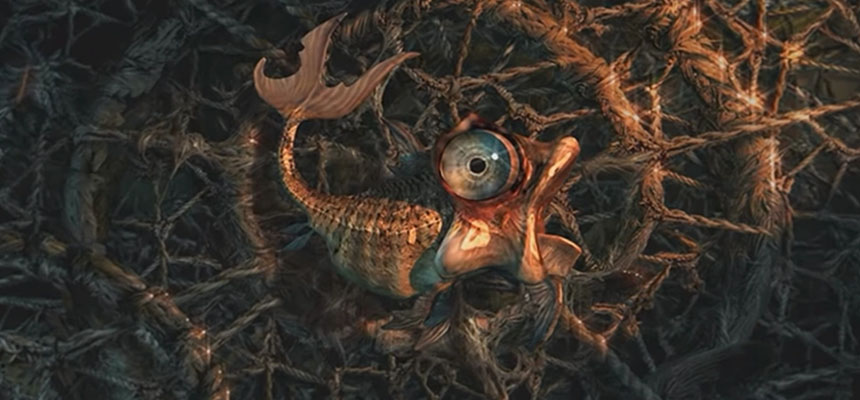Welcome back readers.
Well, that didn’t take all that long in the grand scheme of things–but still longer than it would have had Unity never tabled those disastrous changes to their monetization in the first place. Much public trust has been eroded in the company, and it seems that developers at all scales will be keeping a wary eye on alternative tools for the foreseeable future.
This Week in Videogame Blogging is a roundup highlighting the most important critical writing on games from the past seven days.
Brought to Market
This week’s issue follows a structure of four rhyming couplets–four pairs of articles which together foster critical conversations moving in different directions. The first looks at series that might have had more transgressive narrative ambitions in the beginning, but which ultimately lost their bite to bets hedged in the name of market appeal.
- It’s That Lonely Sinking Feeling | No Escape
Skeleton looks back at the women of Mass Effect 2, sanded down for Fox News sensibilities, and asks who they are really written for. - Terraforming Oddworld | KRITIQAL
Jessica Hill presents an anticapitalist reader’s guide to the Oddworld series through all its occasional peaks and many valleys.
“In 2023, even loosely leftist politics in games is an ongoing culture war, one which has developers actively denying the politics of their games in order to appeal to a certain type of reactionary gamer. The new shape Oddworld has taken reflects that in its cowardly equivalences. It is a peek into the new politics of Oddworld: that to revolt, one must not be revolting, that violence is not OK even in service of revolution. Gone is the counterculture, and in its place, frustrated political neutrality. In the end, all are expendable, even the morals the game says it is teaching us.”
Dominant Inquiries
Next we have two authors contributing to a growing picture of Final Fantasy XVI as a fundamentally fragmentary experience.
- A Flame That Burns Infrequently – Final Fantasy XVI | Pixpen
Sam Howitt unpacks Final Fantasy XVI as a mixtape of largely-unfilfilled ideas and tropes borrowed from better games and stories. - ‘Final Fantasy XVI’ Has An Identity Crisis | Epilogue Gaming
Flora Merigold sums up Final Fantasy XVI as bifurcated between brief peaks of brilliant spectacle and vast chasms of agonizing filler.
“Final Fantasy XIV is a game that is designed to feel endless, to keep you hooked on their monthly subscription and logging back in for more; it seems to be the case that Final Fantasy XVI makes the fatal misstep of thinking that what quests it offers can feel the same way and still be successful. But because the player goals are so entirely different, this design does not readily translate. Final Fantasy XVI needs to keep its players engaged and feeling rewarded for more than its cutscenes.”
Storied Worlds
Now let’s turn our attention to the narrative topographies of some very large (and very different) story worlds.
- Mask of the Rose Provides Character-First, Monster-Dating Fun | Sidequest
Melissa Brinks catches up on Failbetter’s latest release as a fittingly character-drven, albeit obtuse complement to their broader Fallen London setting. - The BEAddventure: A 25th Anniversary Retrospective | Vehe Mently
Vehe Mently peers into a sprawling, unruly, and fascinating world of community-authored pornographic interactive fiction.
“The tone of the BE Addventure is totally driven by the immediate erotic impulse. This is the embodiment of pornography, a form defined by its prurient pursuit of gratification. As such, the BE Addventure is often acutely pornographic in ways the average smut can only dream of being. The author is the consumer, and the desire is its fulfillment.”
Star Fissure
Finally, let’s examine the staying power of two legendary classics–both of them coincidentially turning 30 this year. Anyone else’s knees suddenly feel a bit stiff?
- Gauntlet IV: “Game needs port, badly” | Kimimi The Game-Eating She-Monster
Kimimi plays through the best and most forgotten version of the original Gauntlet. - 30 Years Ago Myst Introduced Us to an Unforgettable Abandoned World | Paste
Cameron Kunzelman marks 30 years of Myst less interested in its historical acheivements and more interested in what it remains today: a whole vibe.
“30 years of Myst unrivaled seems impossible, and yet here we are, its puzzles and ideas and strange hand-scrawled tracts of universal history still standing, lasting longer in our memory than the holiday hits of a few years ago.”
Subscribe
Critical Distance is community-supported. Our readers support us from as little as one dollar a month. Would you consider joining them?
Contribute
Have you read, seen, heard or otherwise experienced something new that made you think about games differently? Send it in!


